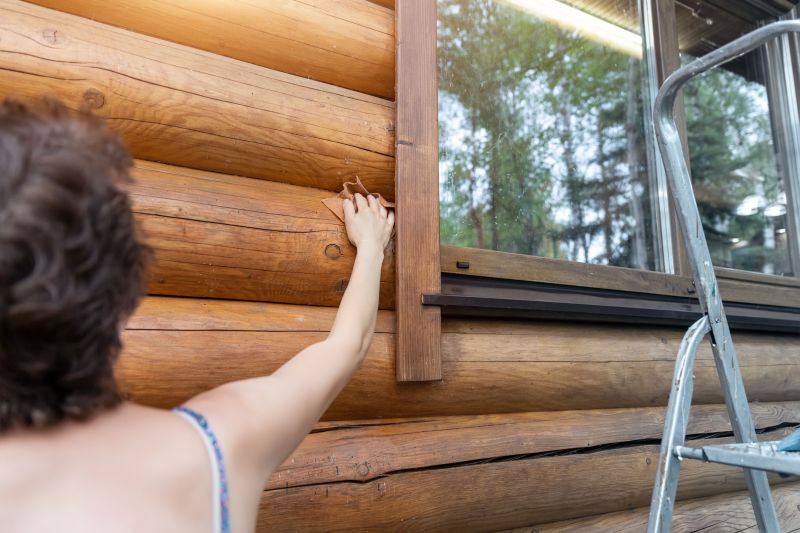Top-Rated Products For Siding Service Projects
Get insights into the essential products that help contractors complete siding jobs efficiently and effectively.
 In Herndon, VA, selecting the right products for siding service is essential to ensure durable, effective, and aesthetically pleasing results. Siding products come in a variety of materials, each offering different benefits suited to diverse home styles and maintenance preferences. From traditional options like vinyl and wood to modern composites and metal options, there are numerous choices available to meet specific project requirements.
In Herndon, VA, selecting the right products for siding service is essential to ensure durable, effective, and aesthetically pleasing results. Siding products come in a variety of materials, each offering different benefits suited to diverse home styles and maintenance preferences. From traditional options like vinyl and wood to modern composites and metal options, there are numerous choices available to meet specific project requirements.
Top Overall Option
Versatile Siding Panel System
A versatile siding panel system offers a balanced combination of durability, ease of installation, and aesthetic flexibility. Designed to accommodate various architectural styles, these panels can be made from different materials such as fiber cement, composite, or metal, providing options tailored to specific needs. They are suitable for both new construction and renovation projects, offering long-lasting performance and minimal maintenance. Their adaptability makes them a preferred choice for many siding applications in Herndon, VA.
Types of Products For Siding Service
Vinyl Siding Panels
Popular for their affordability and low maintenance, vinyl siding panels come in a wide range of colors and styles, making them a flexible choice for many homeowners.
Fiber Cement Boards
Known for their durability and resistance to pests and weather, fiber cement boards provide a sturdy option that mimics the appearance of wood or masonry.
Wood Cladding
Offering a classic aesthetic, wood cladding requires regular maintenance but adds natural warmth and character to exterior surfaces.
Metal Siding Sheets
Metal siding provides excellent weather resistance and a modern look, suitable for industrial or contemporary styles.
Engineered Wood Siding
Engineered wood combines the appearance of natural wood with enhanced durability and resistance to moisture and pests.
Brick Veneer Siding
Brick veneer offers a traditional, textured look with minimal weight and maintenance requirements.
Stucco Siding
Stucco provides a seamless, textured finish that can be customized with various colors and patterns.
PVC Siding
PVC siding is lightweight and resistant to moisture, making it suitable for areas prone to humidity.
Composite Siding
Composite materials combine various elements to deliver durability, aesthetic appeal, and low maintenance.
Aluminum Siding
Aluminum siding is lightweight, resistant to corrosion, and offers a sleek, modern appearance.
Stone Veneer
Stone veneer provides a natural, textured look and adds substantial visual interest to exterior walls.
Insulated Siding Panels
Insulated siding panels incorporate a layer of foam insulation, enhancing energy efficiency.
Polymer Siding
Polymer siding is durable and resistant to weathering, with a variety of textures and colors.
Rubber Siding
Rubber siding offers flexibility and impact resistance, suitable for specific aesthetic or functional needs.
Brick and Stone Panels
These panels replicate traditional masonry and are used to create a timeless exterior look.
Popular Choices
Widely used for their affordability and ease of installation, vinyl siding remains a popular choice for many homeowners.
Offering a durable and low-maintenance option, fiber cement boards are favored in various climates.
Combining natural wood aesthetics with enhanced resilience, engineered wood is trending in residential projects.
Metal siding’s sleek appearance and weather resistance make it a trending option for modern homes.
Stucco remains popular for its textured finish and versatility in design.
PVC siding’s resistance to moisture and ease of maintenance contribute to its popularity.
Composite options are increasingly favored for their durability and aesthetic flexibility.
Aluminum siding continues to be a preferred choice for its lightweight nature and modern look.
Brick veneer offers a classic appearance with minimal weight, making it a trending exterior finish.
Insulated siding panels are gaining popularity for their energy-saving benefits.
Stone veneer remains a sought-after choice for adding texture and visual interest.
Polymer siding’s durability and variety of textures keep it in high demand.
Rubber siding is emerging as a practical option for impact resistance and flexibility.
Understanding the key features of each product type can help homeowners and contractors make informed decisions. Factors such as durability, ease of installation, weather resistance, and maintenance needs are crucial considerations. Proper selection can enhance the longevity of the siding, improve energy efficiency, and contribute to the overall curb appeal of the property.
In addition to material considerations, the compatibility of siding products with existing structures and their ability to withstand local weather conditions are important. Herndon’s climate, with its seasonal variations, necessitates products that can handle temperature fluctuations and moisture exposure effectively. Consulting with local siding professionals can provide insights into the most suitable options for your specific location.
Investing in quality siding products not only impacts the visual appeal of a home but also influences long-term maintenance costs and structural integrity. Whether undertaking a new installation or replacing existing siding, choosing the right products tailored to your needs is a vital step towards achieving a successful siding project in Herndon, VA.
Key Buying Considerations
- Material durability and resistance to weather elements common in Herndon, VA.
- Maintenance requirements and long-term upkeep needs.
- Compatibility with existing structures and architectural style.
- Ease of installation and potential labor costs.
- Aesthetic options including colors, textures, and finishes.
- Energy efficiency features, such as insulation properties.
- Cost considerations and overall budget constraints.
- Availability of replacement parts or panels for future repairs.
- Local building codes and regulations compliance.
- Warranty coverage and manufacturer reputation.
- Weight of the siding material and structural support needs.
- Resistance to pests, mold, and rot.
- Environmental exposure including moisture, temperature fluctuations, and wind.
- Compatibility with other exterior elements like trim and soffits.
- Potential impact on home resale value and curb appeal.
